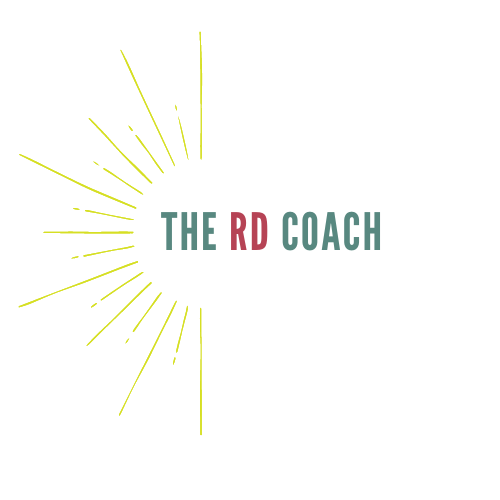5 Dietitian Resume Mistakes to Avoid
As a dietitian, you know how important it is to maintain a healthy lifestyle. But did you know that your resume needs a healthy dose of attention too? Your resume is your first impression to potential employers, and making sure it's in good shape can make all the difference in landing your dream job. To help you out, we've compiled a list of the top resume mistakes that dietitians often make and how to avoid them.
1. Failing to Tailor Your Resume:
One of the biggest mistakes that dietitians make when crafting their resumes is failing to tailor them to the job they're applying for. Your resume should showcase the skills and experiences that are most relevant to the position you're seeking.
Each time you apply to a new job, you should tailor your resume to the position. This doesn’t mean creating a brand new resume each time, but you’ll want to change around words or bullet points to match the job description. I teach you exactly how to do this in the Resume Reimagined session.
2. Being Too Vague
Another common mistake is being too vague about your accomplishments and responsibilities. Make sure that your resume is specific and provides quantifiable examples of your successes.
For example, instead of saying “Led social media campaign and created social media content”, you should say “Directed social media campaign and increased following by 250% in one year”.
If you work in food service management, you might say “Developed food waste management system leading to a 300% reduction and waste and $1 million dollars in savings”.
If you don’t have a lot of experience under your belt, you may not have tangible numbers to add to your accomplishments and that’s okay. Instead, focus on making sure that each bullet point highlights a different strength/accomplishment and closely aligns with the job description.
3. Ignoring keywords in the job description.
Many large employers use applicant tracking systems (ATS) to scan resumes for relevant keywords. Other organizations might use recruiters who are unfamiliar with the various backgrounds and experiences that dietitians might have. For this reason, it’s really important to use keywords in your resume. Keywords are found within the job description and job responsibilities.
For example, the job description might list:
Assess, diagnose, and treat medical conditions, diseases, or injuries by administering and monitoring diets and providing nutritional counseling.
Teach individuals about diet and nutrition.
You might have these accomplishments worded slightly differently in your resume, but you should reword some of these bullet points to match at least a portion of the bullet points in the job description. You don’t need to do this word for word, but you could include “taught and counseled over 600 patients about diet and nutrition using motivational interviewing”.
4. Overlooking Typos & Errors.
One of the most common mistakes that people make on their resumes is overlooking typos and grammatical errors. Proofread your resume carefully and ask someone else to review it as well. My favorite tool is Grammarly and the Premium Subscription pays for itself in value.
Make sure that you are also consistent with punctuation- decide whether to either use periods after each bullet point or not. I personally prefer periods, but there is no wrong or right way since bullet points are not complete sentences.
It can also be helpful to read your resume out loud bullet point by bullet point. This will help you catch words that are spelled correctly, but not the correct word. For example, you might have written “word” instead of “work”. Usually, Grammarly will catch these mistakes, but not always.
5. Forgetting to update LinkedIn and Social Media Profiles.
Your LinkedIn account is more than just a resume; it is a digital profile that allows you to showcase yourself and your expertise in more depth than a resume. If you’re a second-career dietitian, your resume will also allow you more space to expand on your accomplishments.
LinkedIn also allows recruiters and managers to view your connections. Did you know that you’re more likely to get offered an interview if you have a mutual connection in your network?
Stay tuned for a future blog post with tips on how to maximize your LinkedIn Profile to make it stand out.
While I do recommend including your LinkedIn information on your resume, I don’t recommend including your other social media accounts. In fact, before you start your job search, make sure that you have those accounts set to private. And while you’re at it, do a quick Google Search on your name and make sure that there isn’t anything you wouldn’t want a potential employer to see.
Writing an excellent resume doesn’t have to be complicated. With these tips on 5 dietitian resume mistakes to avoid, you’ll be well on your way to making a resume that stands out. If you need more support with designing and editing your own resume, book a Resume Reimagined session today.



